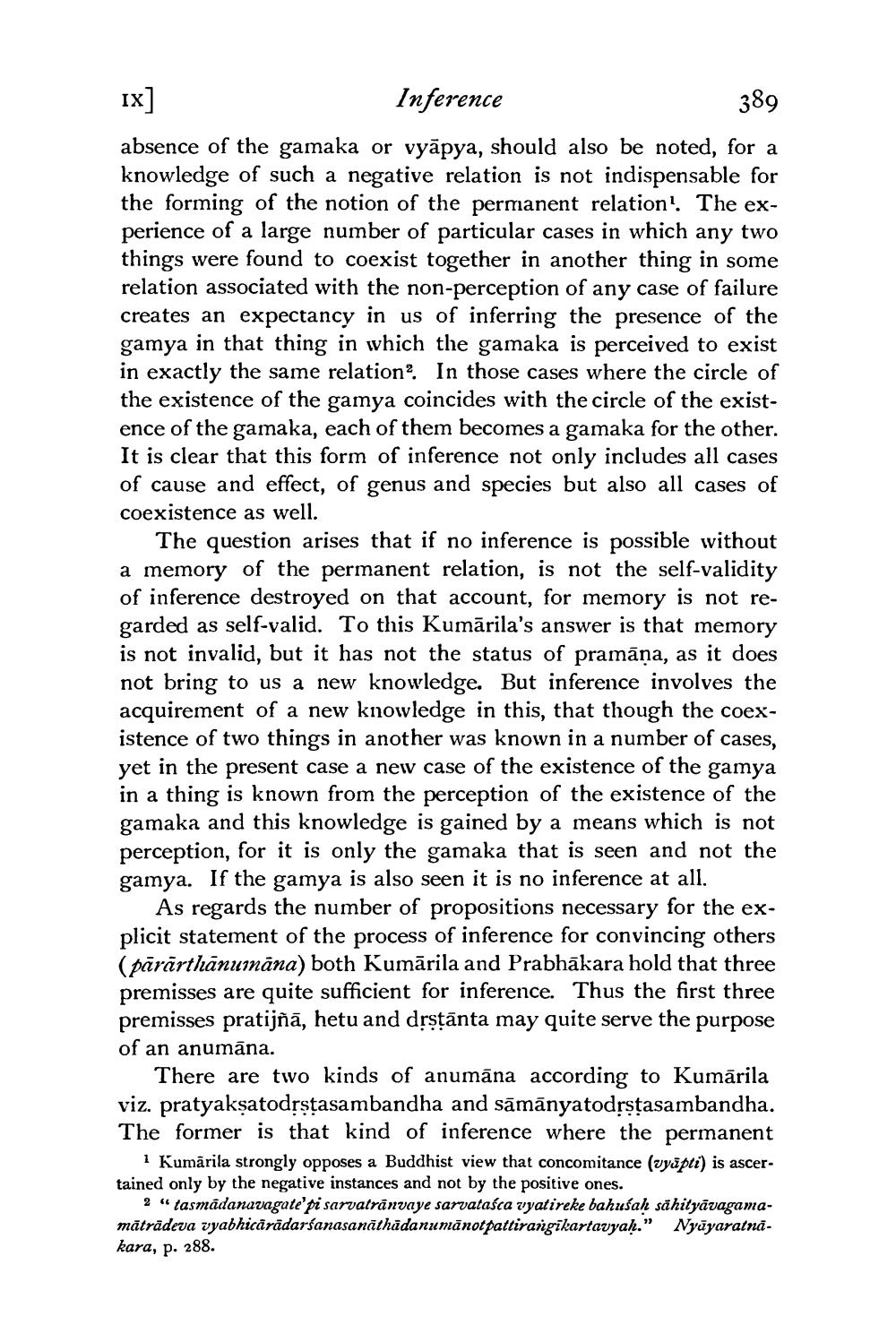________________
1x]
Inference
389
absence of the gamaka or vyāpya, should also be noted, for a knowledge of such a negative relation is not indispensable for the forming of the notion of the permanent relation! The experience of a large number of particular cases in which any two things were found to coexist together in another thing in some relation associated with the non-perception of any case of failure creates an expectancy in us of inferring the presence of the gamya in that thing in which the gamaka is perceived to exist in exactly the same relation?. In those cases where the circle of the existence of the gamya coincides with the circle of the existence of the gamaka, each of them becomes a gamaka for the other. It is clear that this form of inference not only includes all cases of cause and effect, of genus and species but also all cases of coexistence as well.
The question arises that if no inference is possible without a memory of the permanent relation, is not the self-validity of inference destroyed on that account, for memory is not regarded as self-valid. To this Kumārila's answer is that memory is not invalid, but it has not the status of pramāna, as it does not bring to us a new knowledge. But inference involves the acquirement of a new knowledge in this, that though the coexistence of two things in another was known in a number of cases, yet in the present case a new case of the existence of the gamya in a thing is known from the perception of the existence of the gamaka and this knowledge is gained by a means which is not perception, for it is only the gamaka that is seen and not the gamya. If the gamya is also seen it is no inference at all.
As regards the number of propositions necessary for the explicit statement of the process of inference for convincing others (pārārthānuināna) both Kumārila and Prabhākara hold that three premisses are quite sufficient for inference. Thus the first three premisses pratijñā, hetu and drstānta may quite serve the purpose of an anumāna.
There are two kinds of anumāna according to Kumārila viz. pratyaksatodrstasambandha and sāmānyatodrstasambandha. The former is that kind of inference where the permanent
Kumārila strongly opposes a Buddhist view that concomitance (vyāpti) is ascertained only by the negative instances and not by the positive ones.
2 "tasmādanavagate'pi sarvatrānvaye sarvatasca vyatireke bahuśah sahityāvagamamātrādeva vyabhicărādarśanasanāthīdanumānotpattirangikartavyah." Nyāyaratnakara, p. 288.
tained ones mádanuvaradarsanasan




